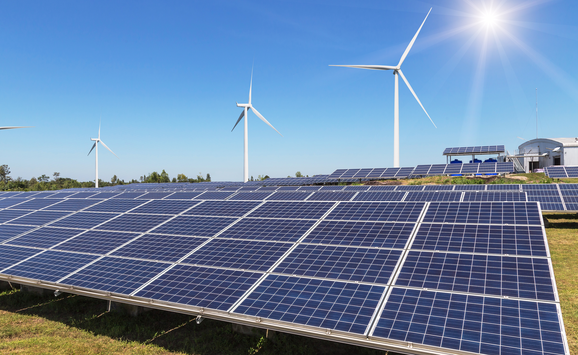Back in late June, the Supreme Court in AEP v. Connecticut rejected a move by states and environmental groups to use nuisance law—that is, the courts—to force power companies to cut their carbon emissions. Many of the issues in the case are complex but the grounds for the decision are not. As I hoped/predicted after oral arguments in the case, the court ruled that EPA’s moves to regulate power plant emissions under the Clean Air Act (something we’ve written a bit about here at RFF) displace any claims under federal common law, like the nuisance claims made by the states.
I won’t go into the details of the decision, partly because it’s old news, but also because others have covered it quite well. But I think a look at the big picture is worthwhile. In my view, the case isn’t really about whether it’s possible to sue emitters, but about who is going to set climate policy for the country.
[caption id="" align="alignright" width="350" caption="(istockphoto.com)"] [/caption]
[/caption]
Connecticut v. AEP says it won’t be federal courts. Despite the Court’s decision, efforts to find a judicial solution aren’t over since other cases continue. In any case, Connecticut v. AEP applies only to federal, not state, law. But I doubt judges will give themselves the power to make climate policy, and if they do I predict higher courts will overturn their decisions. This makes sense for reasons that are implicit in the complex legal doctrines in Connecticut—judges don’t have the training, resources, or political legitimacy to figure out issues this big and complex.
What about the legislature? Congress is where climate policy should be made, but it had an opportunity in 2010 (and, of course, long before that) and could not pass legislation. It’s tempting to place the blame on Senate supermajority rules—without them I believe we’d have at least some kind of national climate policy. But problems go deeper than that. Now, control of the houses is divided—both chambers are busy with problems of their own creation, political polarization is endemic, and the 2012 campaign season has already begun. Dysfunction has pushed Congress’ institutional popularity so low that it has legitimacy problems of its own—anything beyond fixing holes seems out of reach for at least the near future. Senate Majority Leader Harry Reid (D-Nev.) has promised to put energy (since you can’t say climate) back on the fall agenda. But I’ll be very surprised if anything comes of it.
That leaves the executive, and the powers Congress has already granted to it. The Environmental Protection Agency (EPA) is using these powers. As I mentioned above, these moves—most notably the agency’s planned performance standards for fossil-fuel power plants—allowed the Court to avoid the burden of judicial policymaking. But dealing with climate via the EPA is not ideal either. The tools available under the Clean Air Act can be used to make good policy (as we’ve recently argued), but they’re far from ideal. Many Republicans think the EPA does more harm than good and, more importantly, do not trust it. Congress has come close to stripping the agency’s powers to regulate carbon—though doing so would only reopen the door to judicial intervention, since EPA action would no longer displace the common law. Funding for the agency has been cut, making new regulation (and in particular smart new regulation) that much harder. The EPA can make decent short-term climate policy, but it won’t be easy.
The result of all of this is an uneasy status quo as the different branches treat climate like a hot potato. Courts are generally (and wisely, I think) trying to pass the buck. EPA is doing either what it can or what it feels it must (depending on your point of view) in the short term, with perhaps only President Obama’s veto power protecting their efforts. And Congress does nothing.
To me, it’s as powerful an example of American political dysfunction as the debt ceiling fiasco, with similarly global consequences. I’m somewhat sympathetic to Charles Krauthammer’s argument that what gets labeled as dysfunction or overpolarization in Congress is really evidence of an as-yet unresolved political struggle between different visions of government. But even if that’s partly right, we don’t get to call time out on our problems—whether it’s debt or climate change—while that struggle plays out. And the problem isn’t so much that we can’t agree on a climate policy—it’s that we can’t even agree on what arm of government should make the call. It makes for an embarrassing civics lesson.





